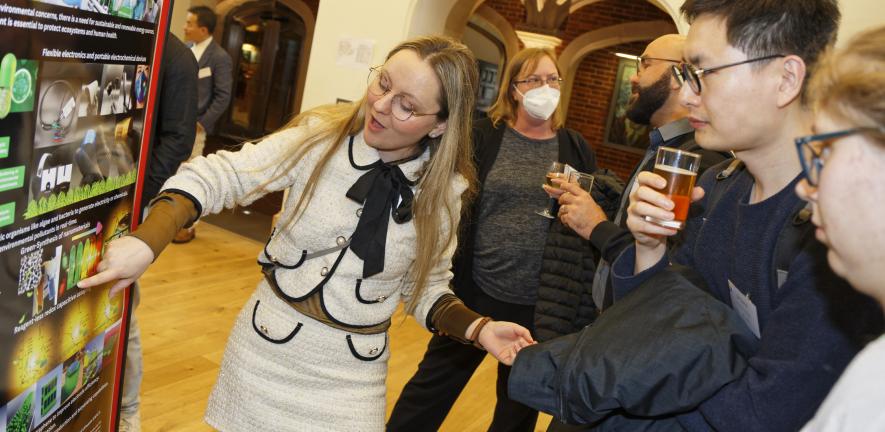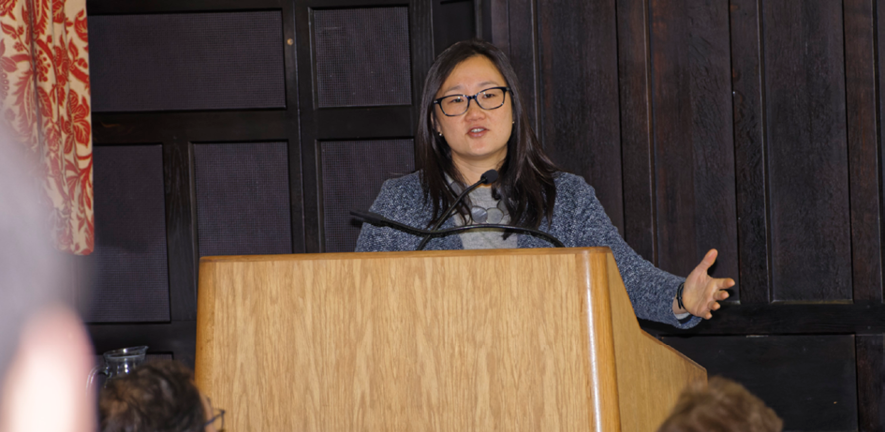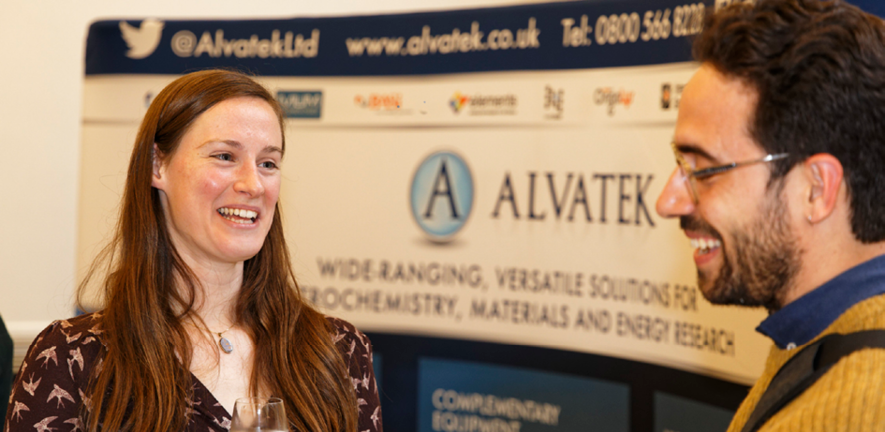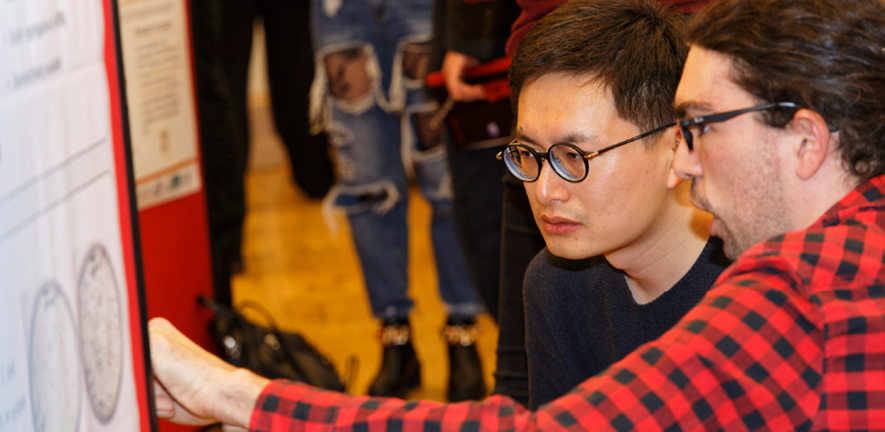
The forum, called 'Biophotoelectrochemical Systems: Solar Energy Conversion and Fundamental Investigations', hosted many high profile international speakers who gave leading insights into the latest developments in materials, strategies, and challenges related to solar energy. Its aim was to bring together experts from the international community to informally discuss research and map out how to push the field forwards.
The organisers included Dr Jenny Zhang and Professor Erwin Reisner of our department, and Professor Nicolas Plumeré from the Technical University Munich, and it was hosted at St John’s College.

Jenny Zhang speaks at the BioPEC conference, courtesy Nathan Pitt ©University of Cambridge
Jenny comments: "This was such a highlight in our calendars and a real treat to be able to show off our beautiful city and university to our research community. Cambridge played historically special roles that amounted to the flourishing field of biophotoelectrochemistry, from J. J. Thomson, who uncovered the wave nature of electrons, to Richard Henderson, who obtained the first cryogenic electron microscopy image of photosynthetic proteins. It was very appropriate to host this future-forward looking forum here.”
“There were lots of student and postdoc helpers from the Chemistry Department and we couldn’t have pulled off this fantastic event without everyone’s help. It was great to finally host this workshop after three delays due to COVID.”

Marion Isabella May Short at the BioPEC conference, courtesy Nathan Pitt ©University of Cambridge
Marion Isabella May Shorts, who volunteered at the conference, is a NanoDTC PhD student jointly supervised by Professor Erwin Reisner and Professor Sam Stranks who is working on solar technology for generating fuel. She comments:
“Attending this conference was an extremely valuable experience. This gave me the opportunity to learn from leading experts about the most recent advancements in the field, and discuss the future directions. I was able to network with researchers from all stages of the academic career, from PhD students and postdocs to principal investigators. This meant that I could have many interesting conversations and exchange ideas on how to move the field forward.”

Dr Lin Su at the BioPEC conference, courtesy Nathan Pitt ©University of Cambridge
Dr Lin Su, a Leverhulme Early Career Research Fellow in the Reisner lab, also volunteered at the conference. His work focuses on engineering materials and microorganisms so that they transfer electrons for artificial photosynthesis.
"Attending the BioPEC workshop has been an incredible opportunity for me to establish connections with colleagues in my field. I had the pleasure of reuniting with old friends and meeting colleagues with whom I have collaborated remotely for years but never met in person due to COVID-19. The workshop not only enriched my knowledge and expanded my understanding of the subject matter but also introduced me to new individuals working in this area."
"Moreover, being involved in the organisation of the workshop offered me a unique perspective on how academic conferences are conducted, providing me with valuable experience that will benefit me in future endeavours."

